Idea by
Nicolò Croce, Giulia Crotti, Matteo Joseph da Lisca
TRA - Territorial Regeneration Agency
Call for ideas 2021
Slow Landscapes
Slow Landscapes
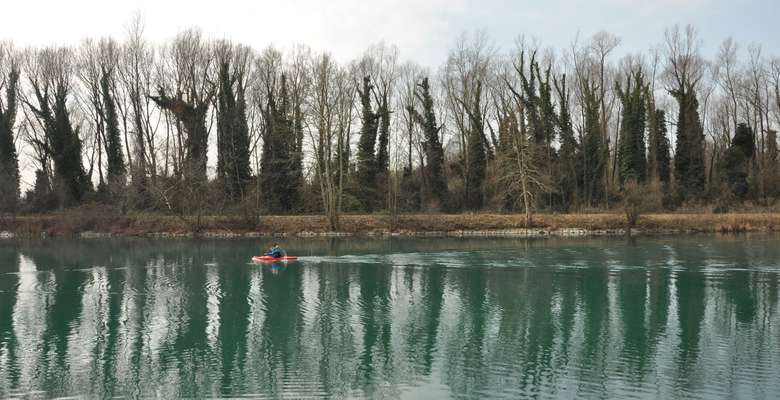
- Systemic changes
Can the Territory be an alternative and/or complementary settlement model to the dynamic and fast environments developed in the world? We believe that through a new form of planning focused on developing a strategic project, shared visions and long/short term scenarios, there can be a new life for the territory and for the people who live there, that today suffer from the competition with globalized environments.
Traditional planning cannot resolve problems greater than, or outside, itself, because of its short-sighted problem-solving solutions moved by specific interest.
Slow Landscapes is a research-through-design oriented approach. It aims to create guidelines in which different strategic projects can take place to ensure habitability, cultural diffusion and an efficient functioning of the entire territory.
The territorial transect we studied focused on the landscapes crossed by the cycle-way Sole along the Mincio River, between the Garda Lake and Mantova, in Northern Italy.
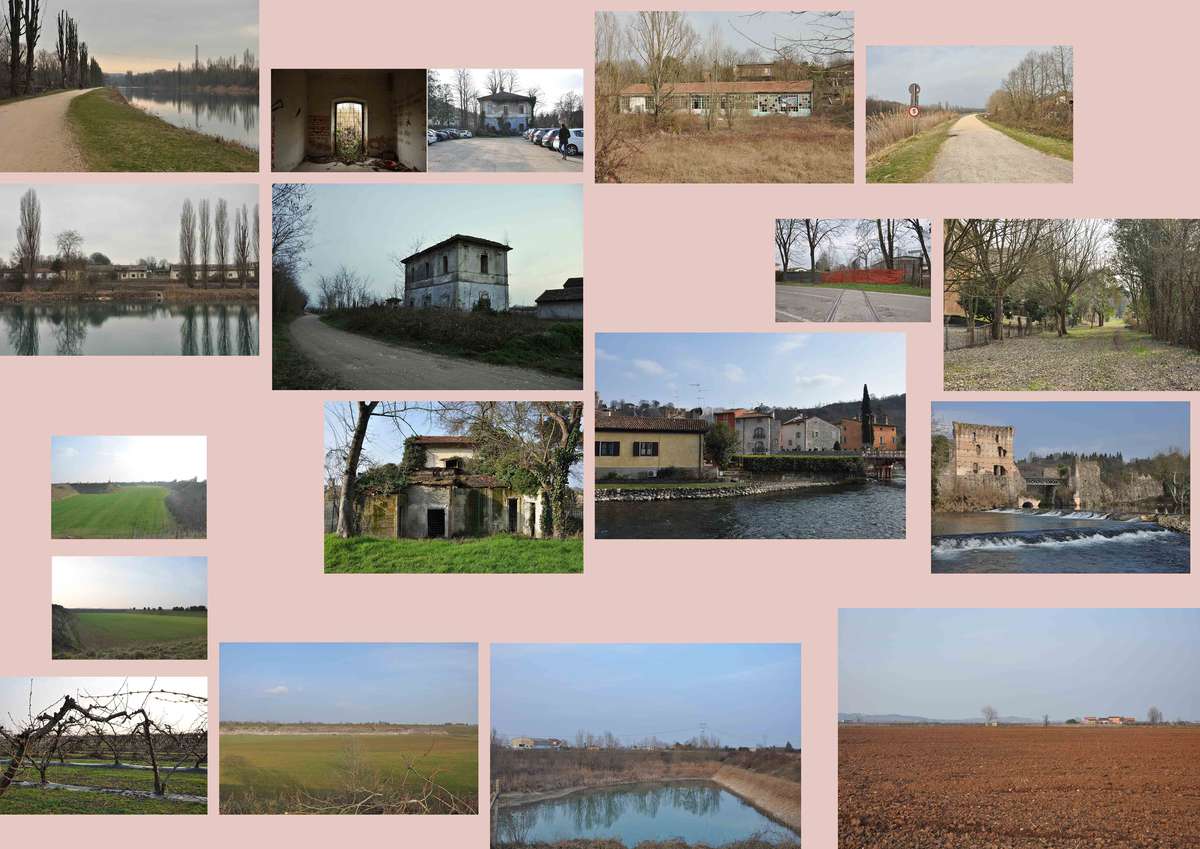
The scenario we present questions which actions and processes could be activated if we reconsider the use of soft mobility, abandoned heritage, wasted and wasteful spaces as matrices for a renewal of the Slow Territory and its landscapes.
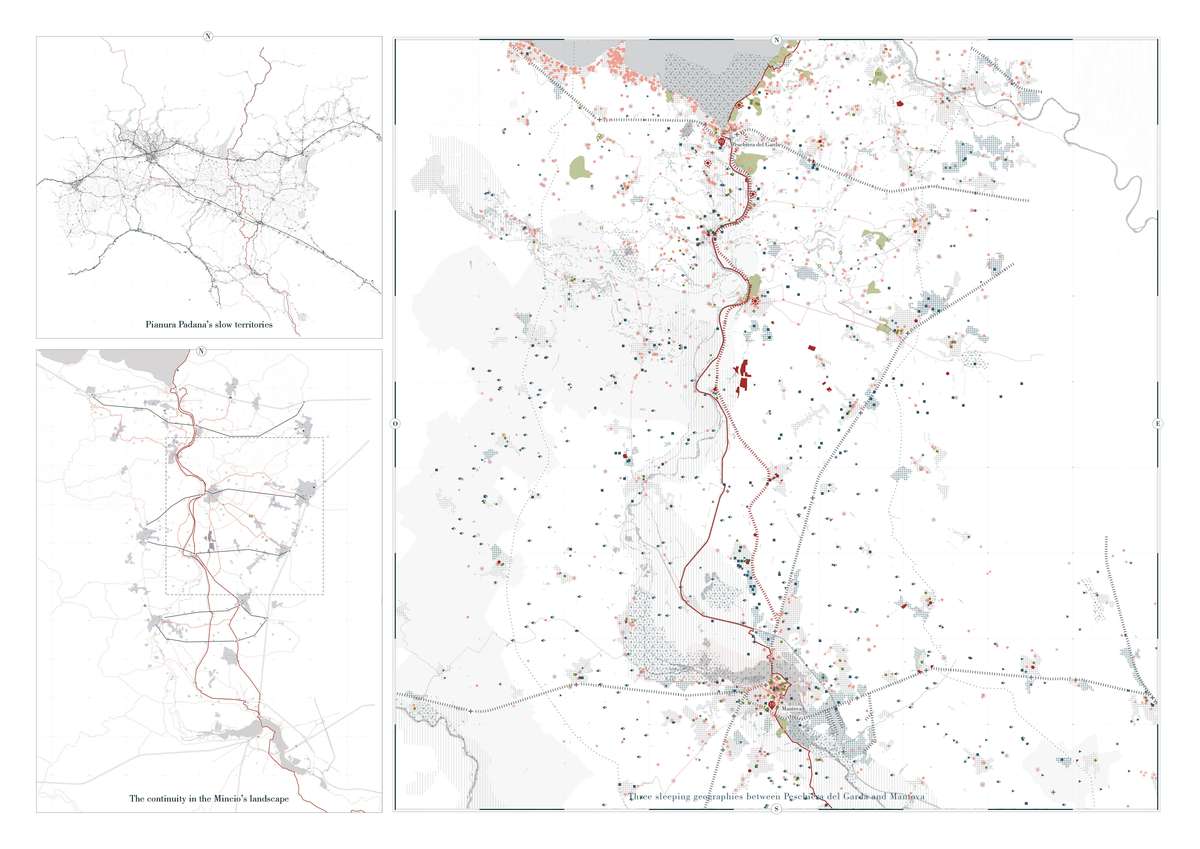
Exploiting national and transnational opportunities, we operated with municipal and regional institutions, local organizations and citizens, in order to tackle real time issues such as: shrinkage, abandonment, loss of identity, lack of services, environmental issues.
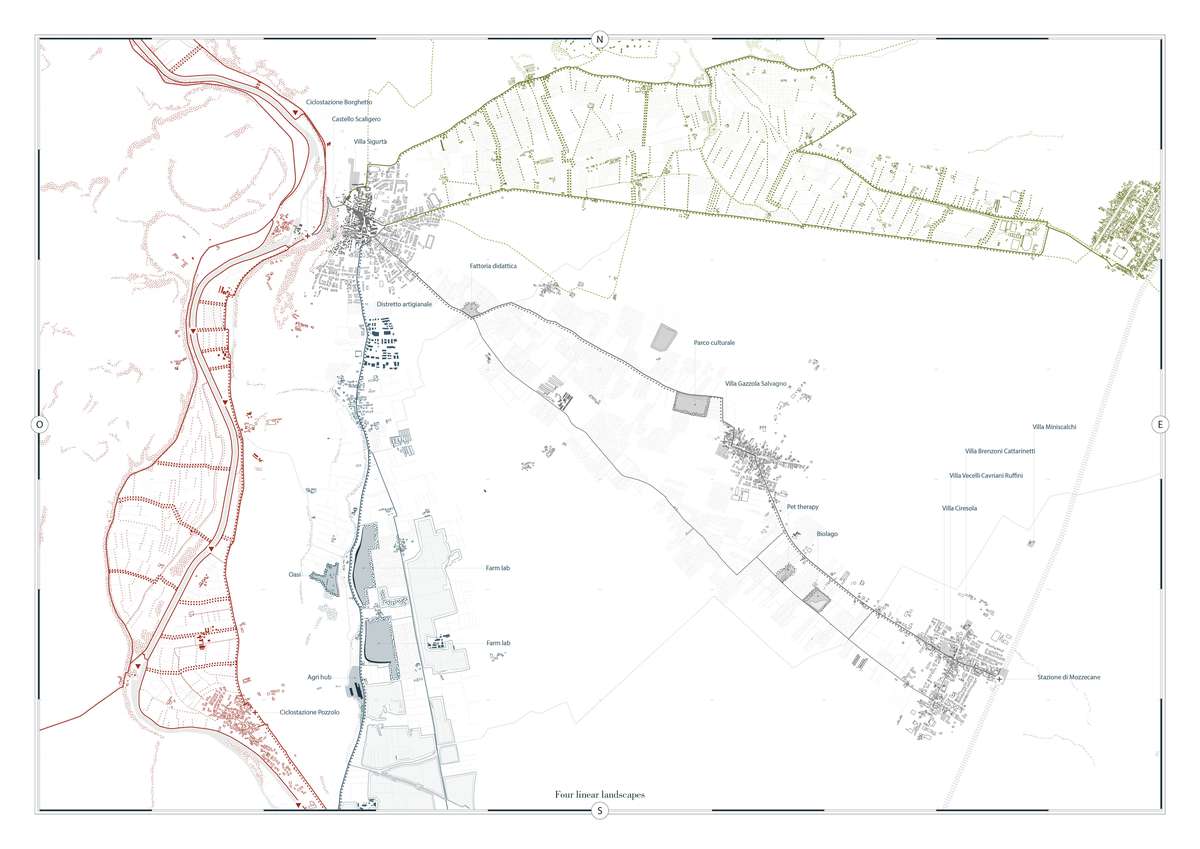
By reconfiguring the existing territorial settlements to become a stage for innovative production practices, art and cultural events, we would value existing heritage, enhance landscape structures and bring local and international interest. New urban models can emerge where morphological qualities are not based on the density of its built environment, but rather on the complexity of the slow infrastructure, the open spaces and the natural elements.
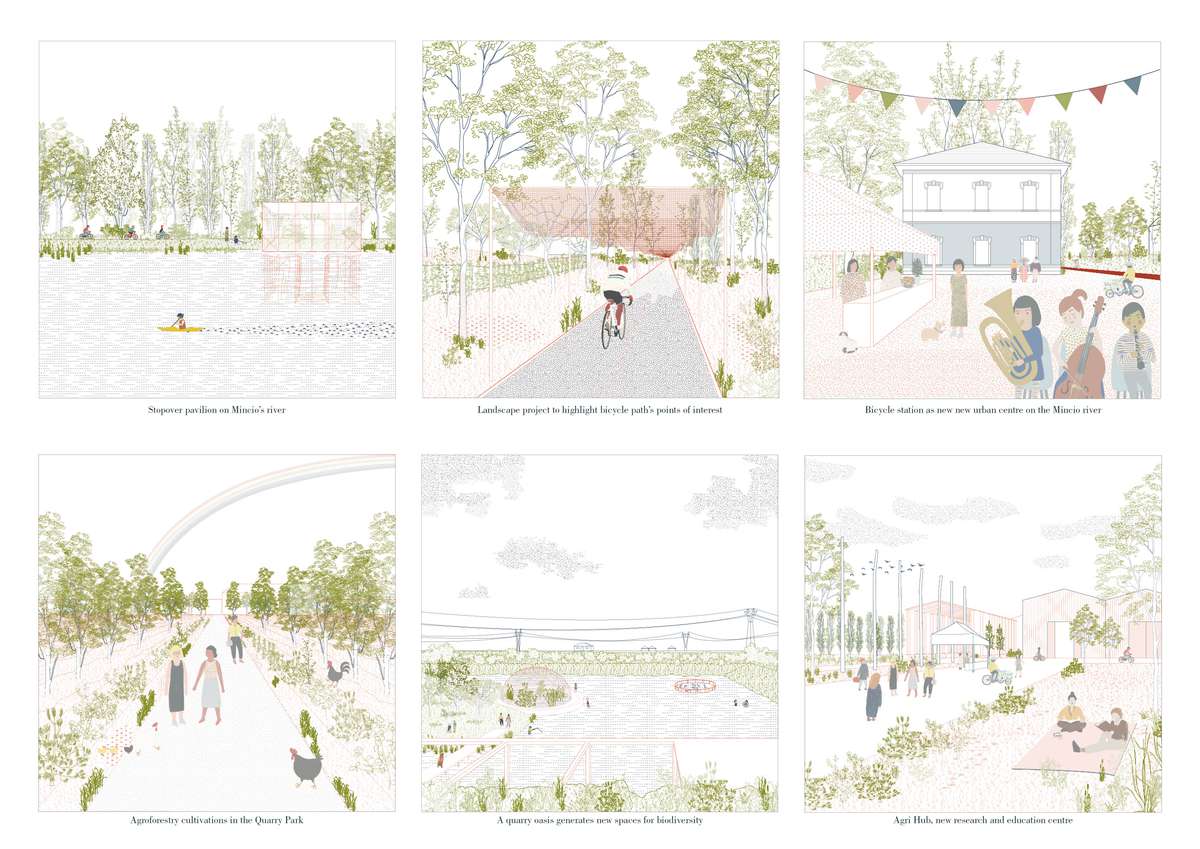
The vision outlines a new urbanity of these places to restore lifestyles, social and economic habits, while respecting the landscape. In fact, by defining sequences of spaces and materials, a new collective imagery of the territory can arise: a place of renewal of the local economy, in particular related to agriculture, linked to local and international cycle-tourism, giving the opportunity to tourists and inhabitants awareness of the dynamics of the territory they are crossing.
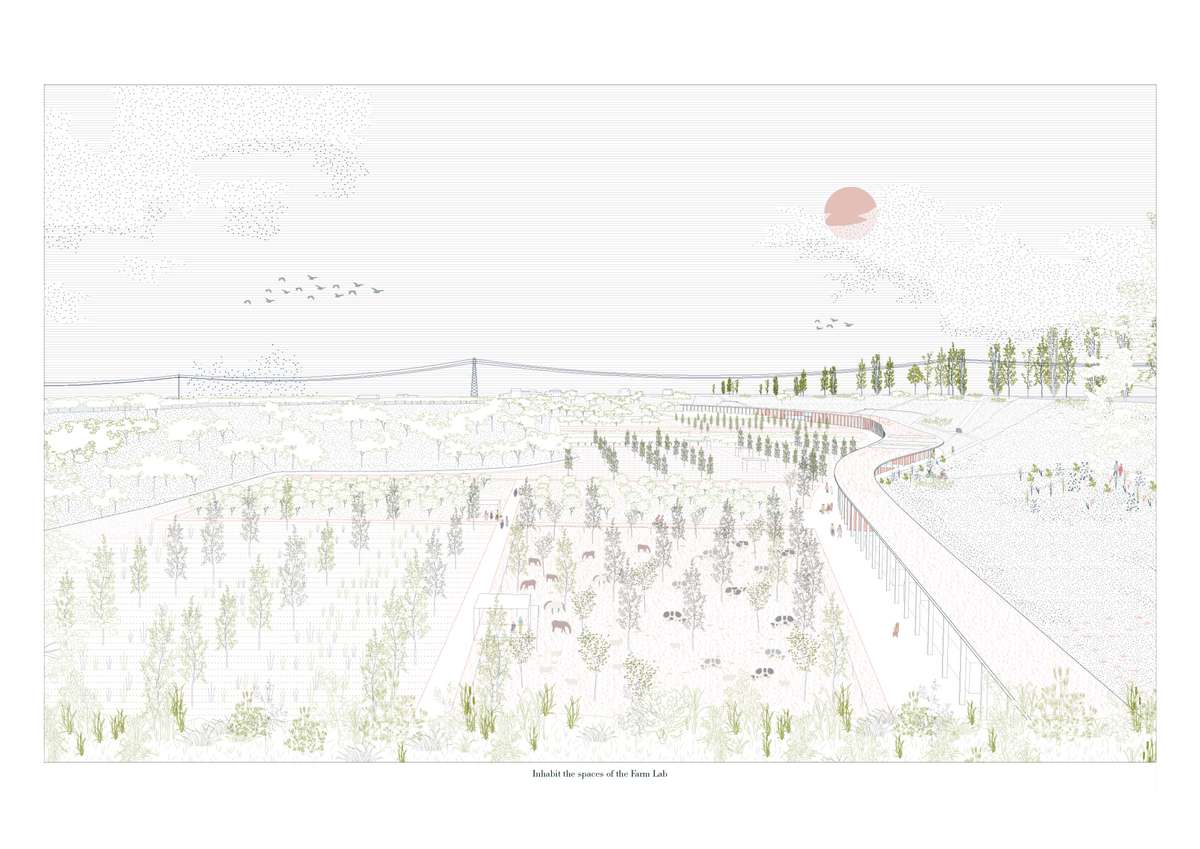
Slow Landscapes was the attempt to realize a scenario that can contribute to construct a future vision for marginal territories. It aims to be an open strategy, replicable in other places in which similar conditions are present, to trigger different actions and projects on the local and regional scale.
Slow Landscapes
Slow Landscapes

- Systemic changes
Can the Territory be an alternative and/or complementary settlement model to the dynamic and fast environments developed in the world? We believe that through a new form of planning focused on developing a strategic project, shared visions and long/short term scenarios, there can be a new life for the territory and for the people who live there, that today suffer from the competition with globalized environments.
Traditional planning cannot resolve problems greater than, or outside, itself, because of its short-sighted problem-solving solutions moved by specific interest.
Slow Landscapes is a research-through-design oriented approach. It aims to create guidelines in which different strategic projects can take place to ensure habitability, cultural diffusion and an efficient functioning of the entire territory.
The territorial transect we studied focused on the landscapes crossed by the cycle-way Sole along the Mincio River, between the Garda Lake and Mantova, in Northern Italy.
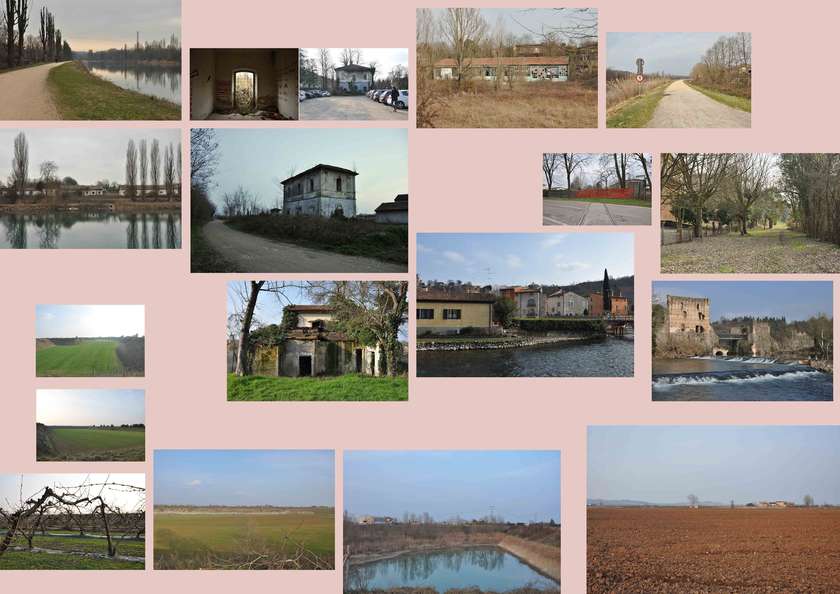
The scenario we present questions which actions and processes could be activated if we reconsider the use of soft mobility, abandoned heritage, wasted and wasteful spaces as matrices for a renewal of the Slow Territory and its landscapes.
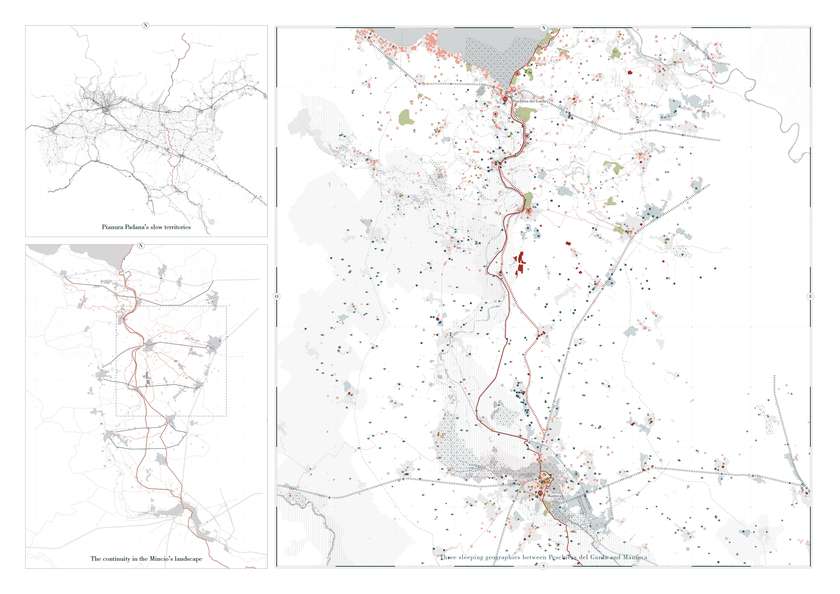
Exploiting national and transnational opportunities, we operated with municipal and regional institutions, local organizations and citizens, in order to tackle real time issues such as: shrinkage, abandonment, loss of identity, lack of services, environmental issues.
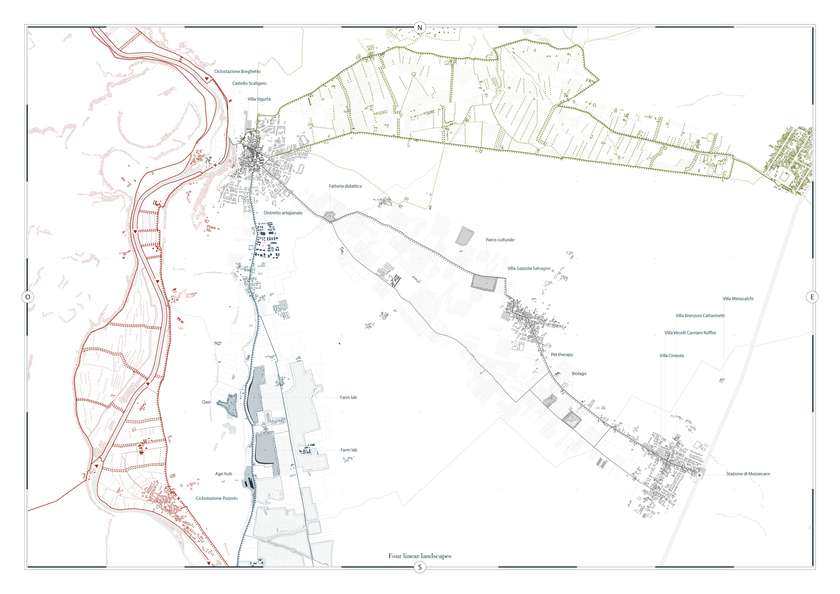
By reconfiguring the existing territorial settlements to become a stage for innovative production practices, art and cultural events, we would value existing heritage, enhance landscape structures and bring local and international interest. New urban models can emerge where morphological qualities are not based on the density of its built environment, but rather on the complexity of the slow infrastructure, the open spaces and the natural elements.
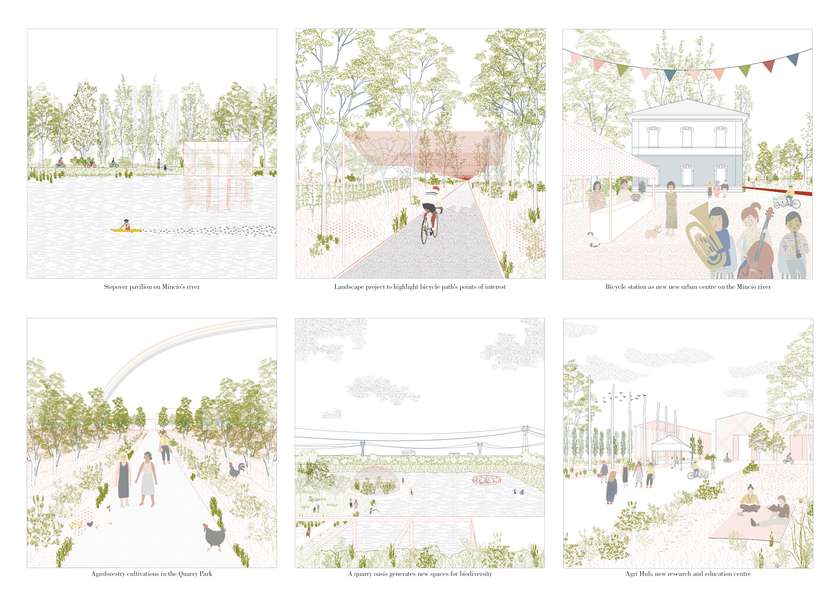
The vision outlines a new urbanity of these places to restore lifestyles, social and economic habits, while respecting the landscape. In fact, by defining sequences of spaces and materials, a new collective imagery of the territory can arise: a place of renewal of the local economy, in particular related to agriculture, linked to local and international cycle-tourism, giving the opportunity to tourists and inhabitants awareness of the dynamics of the territory they are crossing.
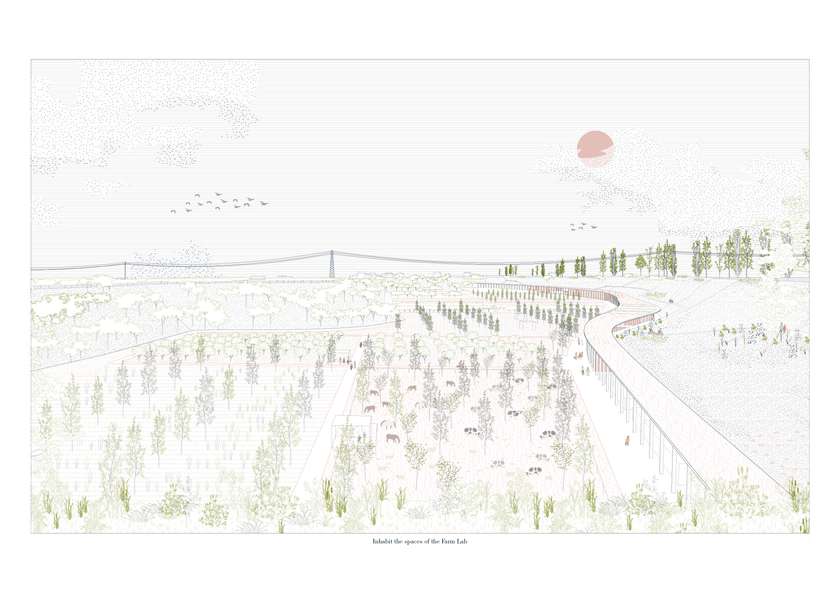
Slow Landscapes was the attempt to realize a scenario that can contribute to construct a future vision for marginal territories. It aims to be an open strategy, replicable in other places in which similar conditions are present, to trigger different actions and projects on the local and regional scale.